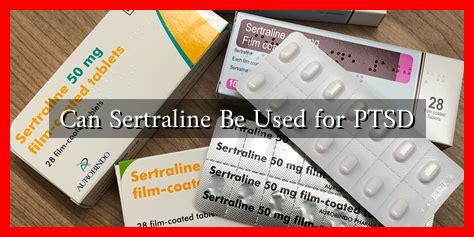-
Table of Contents
Can Sertraline Be Used for PTSD?
Post-Traumatic Stress Disorder (PTSD) is a mental health condition triggered by experiencing or witnessing a traumatic event. Symptoms can include flashbacks, severe anxiety, and uncontrollable thoughts about the event. While various treatment options exist, one medication that has gained attention for its effectiveness in treating PTSD is Sertraline, a selective serotonin reuptake inhibitor (SSRI). This article explores the use of Sertraline for PTSD, its effectiveness, potential side effects, and considerations for patients.
Understanding Sertraline
Sertraline is primarily prescribed for depression, anxiety disorders, obsessive-compulsive disorder (OCD), and panic disorder. As an SSRI, it works by increasing the levels of serotonin in the brain, which can help improve mood and emotional stability. Its use in treating PTSD has been supported by various studies and clinical guidelines.
Effectiveness of Sertraline for PTSD
Research indicates that Sertraline can be effective in alleviating PTSD symptoms. The following points highlight its effectiveness:
- Clinical Trials: A significant study published in the Journal of the American Medical Association found that Sertraline significantly reduced PTSD symptoms in participants compared to a placebo.
- Guideline Recommendations: The American Psychiatric Association (APA) recommends SSRIs, including Sertraline, as a first-line treatment for PTSD.
- Long-term Benefits: Many patients report sustained improvement in symptoms over time, making Sertraline a viable long-term treatment option.
Case Studies and Real-World Applications
Several case studies illustrate the positive impact of Sertraline on individuals with PTSD:
- Veteran Case Study: A 35-year-old veteran diagnosed with PTSD after combat exposure experienced significant symptom relief after 12 weeks of Sertraline treatment, reporting improved sleep and reduced anxiety.
- Survivor Case Study: A 28-year-old woman who survived a traumatic assault found that Sertraline helped her manage intrusive thoughts and flashbacks, allowing her to engage more fully in therapy.
Potential Side Effects
While Sertraline can be effective, it is essential to consider potential side effects, which may include:
- Nausea
- Diarrhea
- Insomnia
- Sexual dysfunction
- Weight gain
Patients should discuss these side effects with their healthcare provider to weigh the benefits against potential risks. It is also crucial to monitor for any worsening of symptoms or emergence of suicidal thoughts, particularly in younger patients.
Considerations for Patients
When considering Sertraline for PTSD, patients should keep the following in mind:
- Consultation with a Professional: Always consult a healthcare provider before starting or stopping any medication.
- Combination Therapy: Sertraline is often most effective when combined with psychotherapy, such as cognitive-behavioral therapy (CBT).
- Individual Response: Each individual may respond differently to medication; what works for one person may not work for another.
Conclusion
Sertraline has emerged as a promising treatment option for individuals suffering from PTSD. Supported by clinical research and real-world case studies, it offers hope for symptom relief and improved quality of life. However, as with any medication, it is essential for patients to work closely with their healthcare providers to determine the best treatment plan tailored to their needs. By understanding the benefits and potential side effects of Sertraline, individuals can make informed decisions about their mental health care.
For more information on PTSD and treatment options, consider visiting the U.S. Department of Veterans Affairs website, which provides valuable resources and support for those affected by this condition.


